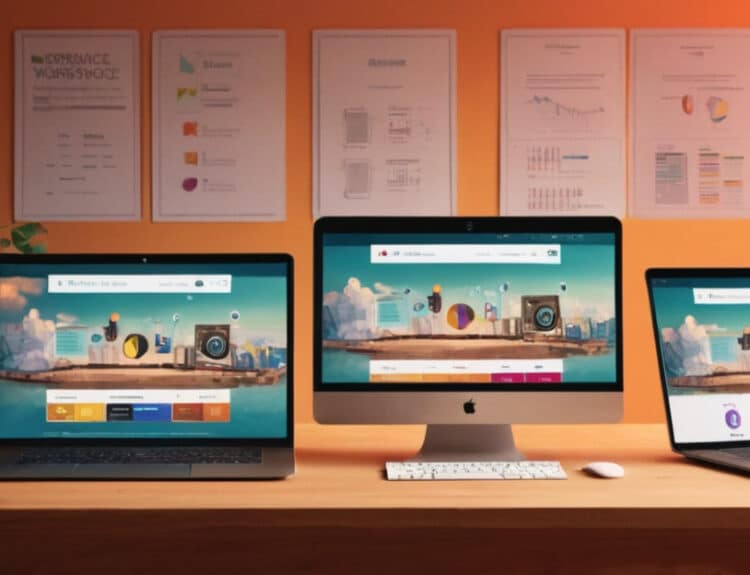
Introduction to Freelance Jobs in 2024
As we step into 2024, the landscape of freelance jobs continues to evolve. With advancements in technology and changing work cultures, more people are considering freelancing as a viable career option. But, like any career path, freelancing comes with its own set of pros and cons. In this article, we’ll delve deep into the seven key advantages and disadvantages of freelance jobs in 2024, helping you make an informed decision about whether this path is right for you.
Key Takeaways
- Freelance jobs offer flexibility and control over your schedule.
- Financial instability and lack of benefits are significant cons.
- Understanding the pros and cons can help you make an informed decision.
- Freelancing requires self-discipline and effective time management.
- Networking and building a client base are crucial for success.
Pro: Flexibility and Control Over Your Schedule
One of the most significant advantages of freelance jobs in 2024 is the flexibility to control your own schedule. Unlike traditional jobs, freelancing allows you to choose when and where you work. This flexibility can lead to a better work-life balance, enabling you to spend more time with family and pursue personal interests. Additionally, freelancers can often adjust their workload based on their availability, making it easier to manage personal commitments alongside professional responsibilities.

Con: Financial Instability and Irregular Income
Despite the many benefits, one of the biggest downsides of freelance jobs is financial instability. Freelancers often face irregular income streams, with months of high earnings followed by periods of little to no income. This unpredictability can make budgeting and financial planning challenging. Unlike salaried employees, freelancers do not receive a steady paycheck, which means they must be proactive in managing their finances and saving for lean periods.
Pro: Opportunity to Pursue Diverse Projects
Freelancing offers the unique opportunity to work on a variety of projects across different industries. This diversity can be incredibly fulfilling, as it allows freelancers to continuously learn new skills and expand their professional network. By taking on diverse projects, freelancers can build a versatile portfolio that showcases their abilities and expertise, making them more attractive to potential clients.
Con: Lack of Employee Benefits
Another significant drawback of freelance jobs is the absence of traditional employee benefits. Freelancers do not receive health insurance, retirement plans, paid leave, or other perks typically provided by employers. This means that freelancers must independently secure their own health insurance and plan for retirement, which can be both time-consuming and costly. The lack of benefits can also add an extra layer of financial stress, especially in times of illness or personal emergencies.

Pro: Potential for Higher Earnings
While financial instability is a concern, freelancing also has the potential for higher earnings. Skilled freelancers can often charge premium rates for their services, especially if they have a strong reputation and a niche expertise. By cutting out the middleman, freelancers can retain a larger portion of their earnings compared to salaried employees. Additionally, successful freelancers can scale their business by taking on multiple clients or projects simultaneously.
Con: Isolation and Lack of Social Interaction
A common challenge faced by freelancers is the sense of isolation. Unlike traditional office environments, freelancing often involves working alone, which can lead to feelings of loneliness and a lack of social interaction. Networking and building professional relationships can be more difficult when working remotely. Freelancers must proactively seek out opportunities to connect with others, whether through online communities, coworking spaces, or industry events.
Pro: Greater Control Over Work Environment
Freelancers have the advantage of creating their own ideal work environment. Whether it’s working from the comfort of home, a local café, or a coworking space, freelancers can choose the setting that best suits their productivity and comfort. This control over the work environment can lead to increased job satisfaction and efficiency. Additionally, freelancers can tailor their workspace to their specific needs, whether that means ergonomic furniture, particular tools, or a specific ambiance.
Con: Difficulty in Separating Work and Personal Life
One of the challenges of freelance jobs is the difficulty in separating work from personal life. When working from home or having a flexible schedule, it can be hard to draw clear boundaries between professional and personal time. This can lead to overworking and burnout, as the lines between work hours and leisure time become blurred. Freelancers must be disciplined in setting boundaries and creating a structured schedule to maintain a healthy work-life balance.
Pro: Autonomy and Creative Freedom
One of the most appealing aspects of freelancing is the autonomy and creative freedom it offers. Freelancers have the liberty to choose the projects they work on and the clients they collaborate with. This independence allows for greater creativity, as freelancers are not bound by the constraints of a traditional corporate structure. The ability to take on projects that align with personal interests and passions can lead to more meaningful and satisfying work.
Conclusion: Weighing the Pros and Cons of Freelance Jobs in 2024
As we’ve explored, freelance jobs in 2024 come with a unique set of advantages and challenges. The flexibility, potential for higher earnings, and creative freedom make freelancing an attractive option for many. However, the financial instability, lack of benefits, and potential for isolation are significant factors to consider. Ultimately, whether freelancing is the right path depends on your personal circumstances, career goals, and ability to manage the inherent uncertainties. By carefully weighing these pros and cons, you can make an informed decision about pursuing a freelance career in the evolving work landscape of 2024.






